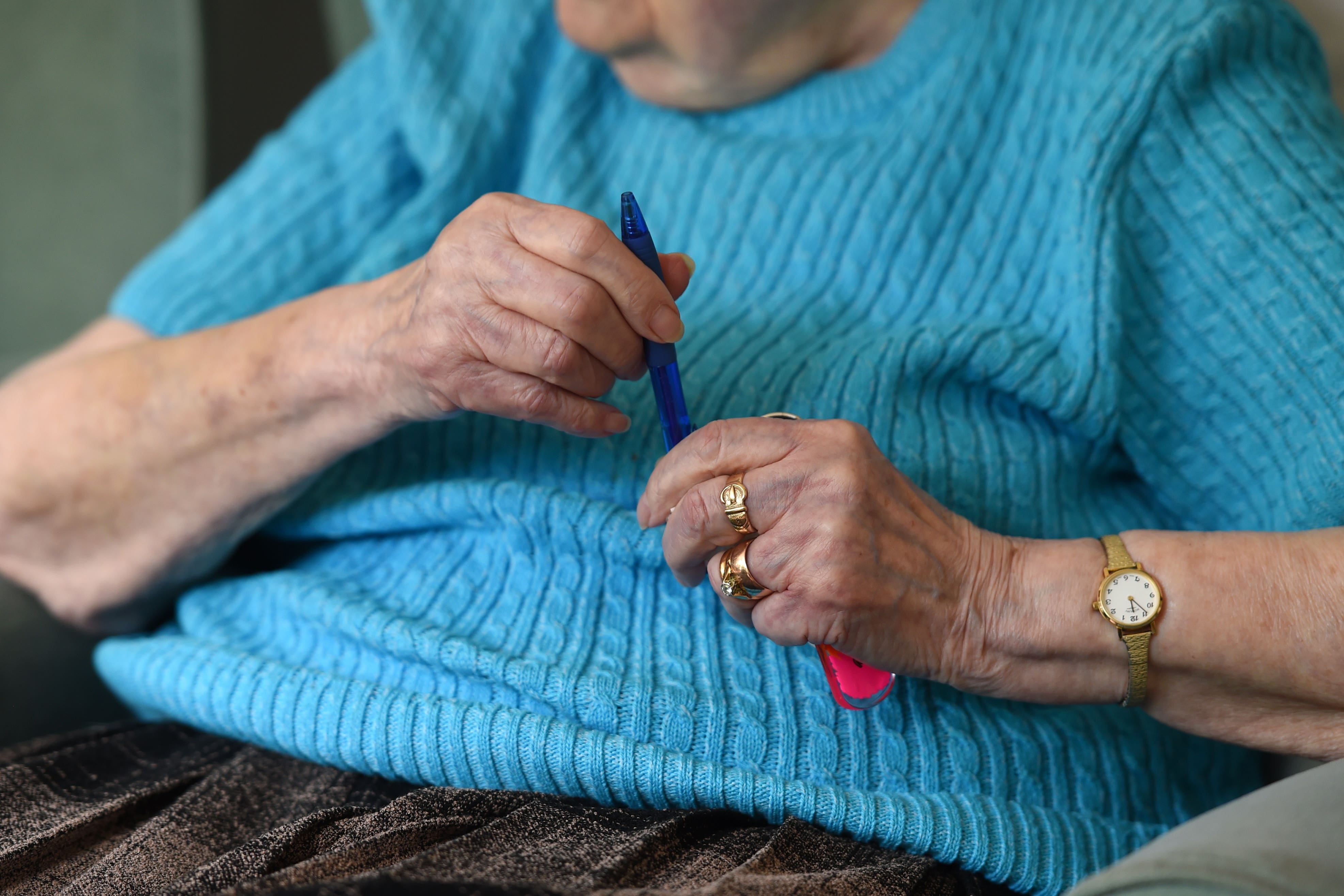Almost one in four healthcare staff working in NHS dementia services believe they are unable to provide patients with the best level of care, a new survey has revealed.
Meanwhile, fewer than a third believe that current diagnostic processes are fit for purpose.
Workers are “being let down by a system that isn’t keeping pace with the scale of the challenge”, Alzheimer’s Research UK warned.
The charity estimates there are 982,000 people with dementia in the UK, although more than a third do not have a formal diagnosis.
The poll, commissioned by Alzheimer’s Research UK, included more than 160 health staff, including GPs, nurses and occupational therapists.
Some 43 per cent told the survey they felt able to give the best level of care to patients, while 23 per cent said they felt unable to do so.
The majority (91 per cent) of workers who responded said a formal diagnosis benefits patients, while fewer than a third said they think the system is delivering on this.
Samantha Benham-Hermetz, executive director at Alzheimer’s Research UK, said: “NHS staff working in dementia services do an incredible job in very difficult circumstances, and it’s clear they want to provide the very best care for people with dementia and their families.
“But too often, they are being let down by a system that isn’t keeping pace with the scale of the challenge.
“With nearly a million people living with dementia in the UK, we cannot afford for diagnosis to remain slow, unequal and unfit for purpose.”
The survey also included more than 500 responses from those impacted by dementia, including people waiting for a diagnosis and those caring for loved ones with the illness.
It found that more than one in three (37 per cent) waited more than a year before seeking help.

Almost a third (30 per cent) received a diagnosis within six months, 51 per cent within 12 months and 74 per cent within two years.
Around one in five (22 per cent) waited more than two years for a diagnosis after visiting their GP.
One respondent, who is supporting their mother to get a dementia diagnosis, said: “My mum is struggling with day-to-day life, and there is nothing we can do about it.
“We can’t even officially put a name to it. It’s devastating watching what is happening with no answers, no support. We desperately need the reassurance of a diagnosis, so at least we know.”
The research was carried out with healthcare consultancy Thiscovery as part of Alzheimer’s Research UK’s new report Seeing the Unseen: Rethinking Dementia Diagnosis.
In June, Alzheimer’s Research UK also launched its Dementia Unseen campaign, which is calling for GP referrals to specialists to take place with six weeks, with diagnosis and treatment plans in place within 18 weeks.
Ms Benham-Hermetz added: “Dementia diagnosis should be a right, not a waiting game.”
The survey results come after it emerged British patients are trialling a major new blood test for Alzheimer’s.
The study will recruit 1,100 people with suspected dementia from diverse geographic, ethnic and economic backgrounds to check how well the test works in the NHS.
Experts hope to have answers within three years.
A Department of Health and Social Care spokesperson said: “Through our Plan for Change, we are getting the NHS back on its feet, creating a society where every person with dementia receives high-quality, compassionate care.
“This government remains committed to increasing diagnosis rates, ensuring people can access any licensed and Nice-recommended treatment and support they need.
“As part of the 10 Year Health Plan, we will deliver the first ever modern service framework for frailty and dementia, to help address variations in diagnosis rates, while continuing to fund high-quality research into dementia.”
‘War game’ exercises preparing NHS for winter pressures
Almost a quarter of NHS dementia staff ‘feel unable to give patients best care’
NHS running ‘war game’ exercises ahead of busy winter
‘Unacceptable’ waiting list of up to eight years for NHS gender care
Government urged to change ‘offensive’ language in disabled children’s law
Pharmacy leaders issue warning over ‘dangerous’ medicine delays







